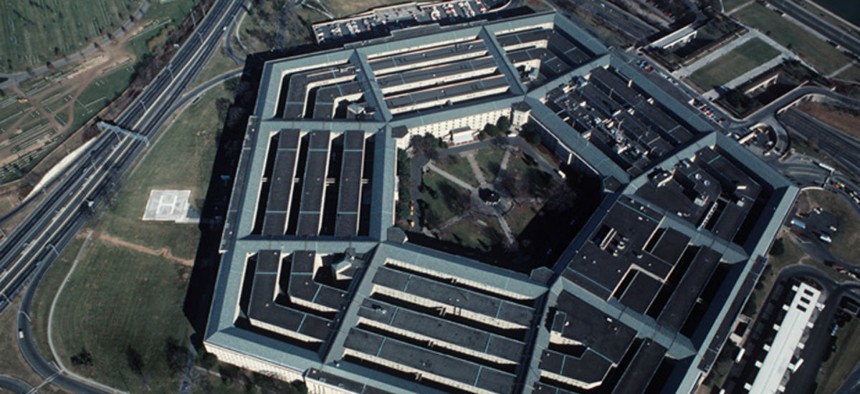
Defense Department file photo
Admiral Resented Hotline Complaints, Pentagon IG Finds
Whistleblower reprisal charges mostly confirmed; general criticized for F-Bombs.
Reportedly having labeled the inspector general system as “malicious,” the commander of the Navy’s Special Operations Africa based in Stuttgart, Germany, in 2011 retaliated inappropriately against anonymous subordinates who filed complaints about him, according to reports released on Thursday by the Pentagon’s Office of Inspector General.
Separately, an Army lieutenant general was found to have failed to treat subordinates with dignity and respect during a meeting, the same watchdog found.
In the Navy case, Rear Adm. Brian Losey beginning in July 2011 became subject to anonymous complaints to the Defense Department IG’s whistleblower hotline—the nature of which was redacted from the reports newly released under the Freedom of Information Act.
Losey was said to be “frustrated and felt that members of his command were disloyal to him, and that they should have addressed any concerns directly with him rather than through IG channels,” one report said. The rear admiral began investigating subordinates to determine who had complained, narrowing it down to three individuals, investigators found. He then threatened the staff at a “locker room” meeting, saying, “If you continue to undermine my authority as a commander, I’m going to come after them and I’m going to [make] it very unpleasant.”
The IG’s investigation substantiated several of the allegations in violation of 5 U.S. Code 2302, but not all. Losey was found to have retaliated against one suspected complainant by lowering the subordinate’s annual performance award while also proposing disciplinary action. Not substantiated was a reprisal accusation that one subordinate was denied a foreign training tour extension and attendance at a professional development training seminar.
Another anonymous complaint accusing Losey of reprisal for a protected disclosure was not substantiated.
The IG recommended that the Navy secretary “take appropriate action” to discipline Losey and restore the complainant’s positive performance evaluation to its original rating to qualify for an award.
But Losey didn’t agree with IG conclusions, and this October the Navy decided the infractions did not warrant denying him his next promotion.
A separate report, redacted and dated July 2014, on an Army officer’s speech to subordinates found that Lt. Gen. John Mulholland Jr., deputy commander of the U.S. Special Operations Command in Tampa, Fla., “made abusive and personal comments toward subordinates” and failed to treat them with dignity and respect” consistent with the Defense Department’s joint ethics and Army regulations.
On April 30, 2014, in an open forum of 30 people in a conference room, Mulholland was briefing staff—including at least one foreign officer—on guidance from then special ops commander Adm. William McRaven on creating a methodology for integrating 14 foreign liaison officers in the special operations command.
According to witnesses, Mulholland within the first minute of a 50-minute briefing displayed “uncontrollable” anger and said, “You all have f--king failed me and the commander ... you should just all go f--king shoot yourselves right now ... if you try to brief this to the commander, I will do everything I can to f--k it up.”
Additional off-color language was used, witnesses reported, though some witnesses denied that the lieutenant general was angry and stressed that the setting was intimate and collegial. Mulholland told investigators he recalled some but not all of the questionable language but stressed the context, saying he was “the most upset he had been in his career.” He had also added that he told the attendees he may “have been unprofessional” and had also said, “I love you guys.”
Mulholland acknowledged that his conduct was not in keeping with standards for a three-star officer. The Army secretary was asked to decide on corrective action. Last January, Mulholland moved to the CIA.







